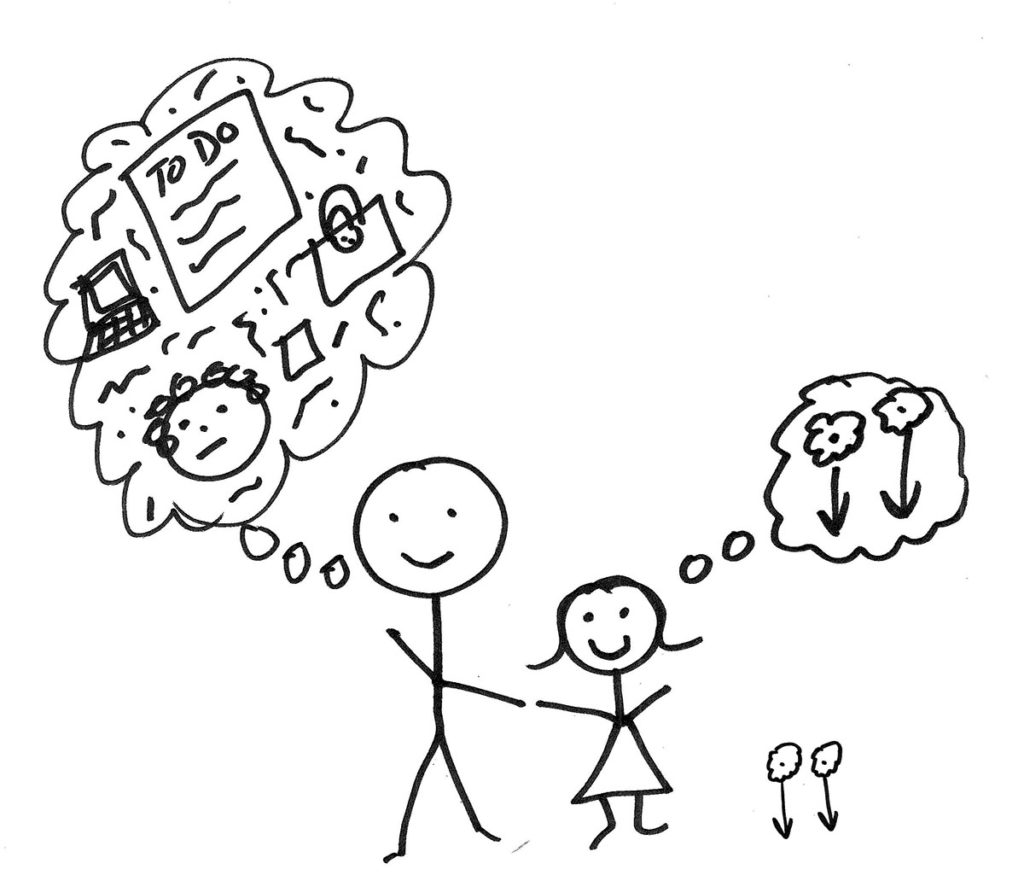By Kierstin Barker

Many of us, myself included, persistently wear our overstimulation as a badge of honor. We are constantly bragging about how busy our lives are or how many items are on our agenda for the week. However, people in the United States are increasingly becoming more anxious and depressed even with all of these activities to keep us busy! Also, multi-tasking doesn’t seem to be very beneficial. Research out of the University of California reveals that not only do people tend to switch activities an alarming every three minutes during the course of a typical workday, but it takes them significantly longer to get back to the original task. Even if we pride ourselves in multi-tasking, it doesn’t seem to be working.
Luckily, there has been a great increase in participation in the Mindfulness Movement. Mindfulness is about putting down our juggling balls for a little bit. It’s about embracing the beauty of monotasking. It’s about being here in the now, not the past or the future, but the present. If you’re the kind of person whose immediate reaction to meditation is an insistence that your brain just works too fast and you simply can’t, you’re exactly the type of person that needs it most! APA cites it as a hopeful strategy for alleviating depression, anxiety, and pain. Mindfulness practice even is able to shrink the brain’s fight or flight center, the amygdala according to 2013 research out of the University of Pittsburgh and Carnegie Mellon University.
Mindfulness is also about approaching our feelings and thoughts and simply acknowledging their presence without judgement. Mindfulness helps us keep in-tune with our emotions and not letting them control us. When assessing our emotions, there are positive and negative elements. Positive, such as happiness and joy, and negative, such as anger and sorrow. We should truly embrace our positive emotions, but also acknowledge the negative elements as well. All too often, we fill our schedules to keep us busy so we do not have to acknowledge the negative elements, creating a build-up of negativity. Feelings are an organic part of the human experience. Meaning, everyone experiences them. Once we accept this fact, we are better able to accept these feelings. When we experience something like anger, we should not run, but rather, we should care for this feeling as if it were our own child, because it is a part of us.
A simple mindfulness strategy when learning about your emotions and yourself can go like this: Starting with the breath. When we pay mind to our breathing, it helps us to be in the here-and-now or the present. You can say this simple saying to yourself: “Breathing in, I am here and I know that my anger is here. Breathing out, I am here for my anger and I will care for it.” Sitting with these emotions helps us better understand them and better care for them when they arise instead of getting overwhelmed with these emotions in the moment.
Consistency in mindfulness matters more than all-or-nothing, built-to-fail extremes. It’s a lifelong project. Ten minutes a day of meditative practice can do wonders for how we approach everyday life and also how we approach our emotions and thoughts. So, instead of speeding through life, take a second or two and simply breathe and appreciate life and you will see the results in the way you carry yourself, the way you prioritize things, and the way you approach your physical and emotional health.
Kierstin is an intern at Anchorpoint Counseling Ministry. She attends Chatham University and is planning to get her master of science in counseling psychology by May 2018 and then become a licensed counselor. Kierstin’s main therapy interests involve mindfulness, cognitive behavioral therapy, and person-centered therapy within individual and family counseling.
